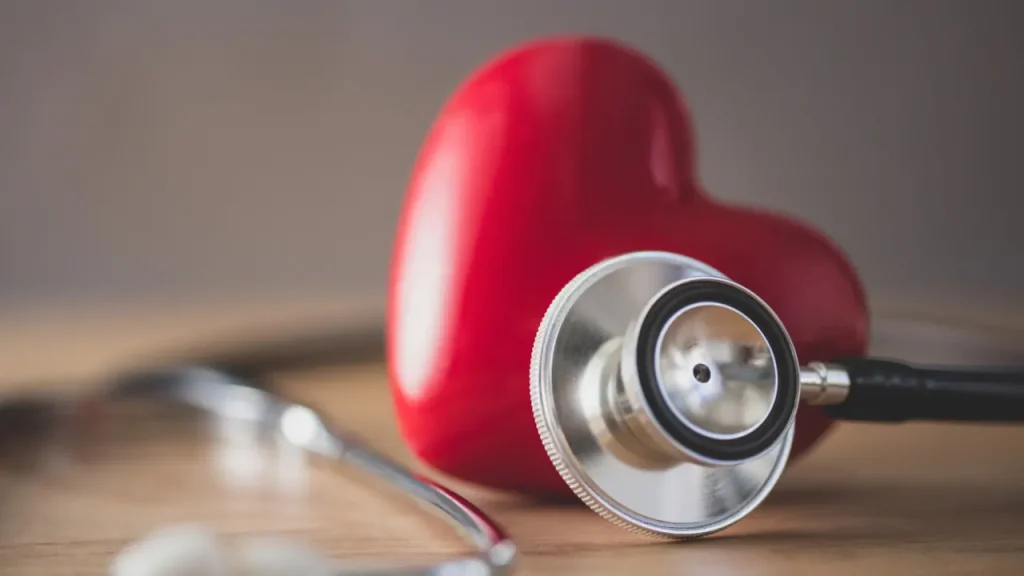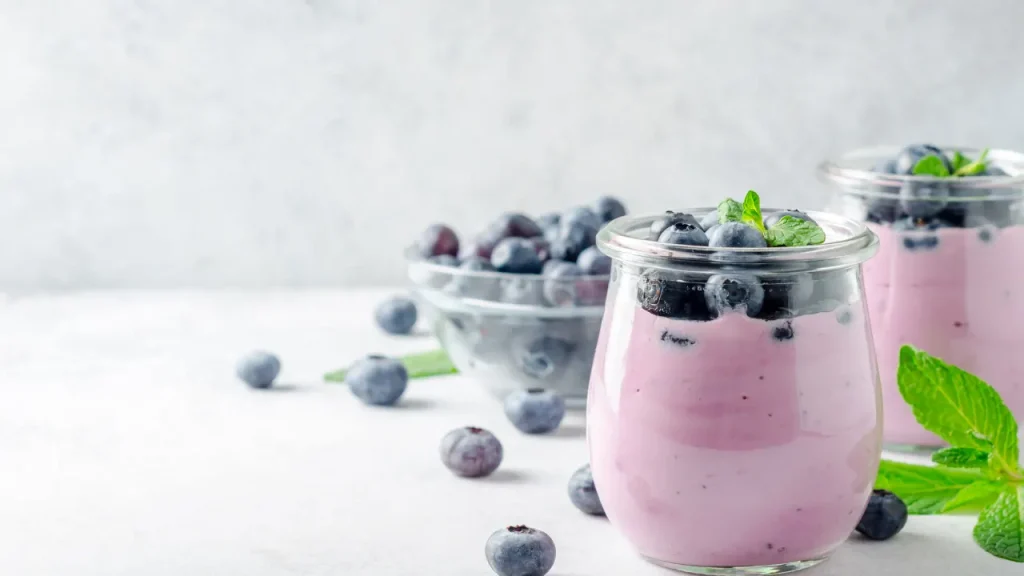Vaccinium blueberries have become a popular fruit with a variety of health-promoting properties. Due to their high concentration of bio-active chemicals, which have been associated with a number of health advantages, they are well recognized as nutritional powerhouses. The nature of blueberries, their health advantages, the ideal dosage, their side effects, any possible drug interactions, and the most ethical ways to take this dietary supplement are all covered in this article. To provide a thorough understanding of blueberries’ potential influence on maintaining good health, a full analysis of their chemistry and physiological actions on the body and brain is documented in this article.
You May Also Like:
Keep Your Brain Young With the 5 Most Powerful Nootropic Supplements
Burning Bush: Benefits, Dosage, Side Effects, Drug Interactions, and Other Important Information
Blueberries: Benefits, Dosage, Side Effects, Drug Interactions, and other Important Information is an original (NootropicsPlanet) article.
The Nature of Blueberries
The genus vaccinium, which has over 450 species, is a branch of blueberries. They are flowering perennial plants with blueberries that are loaded with bio-active substances such as anthocyanins, flavonols, phenolic acids, and other phenolic compounds (1). Vaccinium angustifolium (lowbush or wild blueberry) and vaccinium corymbosum (highbush blueberry) are the two blueberry species most frequently eaten in North America. These species are primarily found in North America, although cultivation of them is now widespread due to their rising demand as a healthy food source.
Health Benefits of Blueberries
The high concentration of bio-active chemicals found in blueberries, which has been shown in numerous scientific studies to have potential health advantages. These substances have biological properties such as antioxidant, anti-inflammatory, and others that support their health-promoting actions.
Antioxidant Properties
Anthocyanins, a group of flavonoids responsible for the intense blue color of blueberries, are particularly abundant in blueberries. Anthocyanins are strong antioxidants that can reduce oxidative stress and neutralize free radicals (2). This antioxidant’s ability to prevent cellular damage may reduce the chance of developing chronic illnesses like cancer, cardiovascular disease, and neurological disorders (3).
Heart and Vascular Health
Eating blueberries has been linked to better cardiovascular health. According to one study, eating blueberries every day for six weeks significantly reduces arterial stiffness and blood pressure, both of which are known risk factors for cardiovascular disease (4). The lipid profiles of blueberries have also been shown to be improved, with levels of low-density lipoprotein (LDL) cholesterol being reduced and levels of high-density lipoprotein (HDL) cholesterol being increased (5).
2.3 Cognitive Capability
Additionally, blueberries have shown to have many possible neuroprotective properties. Consuming blueberries can increase cognitive function by enhancing memory, learning, and attention, according to studies (6). The antioxidant and anti-inflammatory properties of blueberries, which shield neurons from oxidative stress and inflammation, are thought to mediate these benefits (7).
Anticancer Results
Numerous in vitro and in vivo research have looked into the potential anticancer characteristics of blueberries. Anthocyanins, one of the bio-active substances in blueberries, has shown to have the ability to trigger apoptosis (programmed cell death) in a variety of cancer cell lines and to prevent the proliferation of cancer cells (8). Additionally, eating blueberries has been linked to a lower chance of getting several cancers, such as breast, colon, and lung cancer (9).

Chemistry of Blueberries
Bio-active Substances
A wide variety of bio-active substances found in blueberries contribute to their health-promoting qualities. Among the important compounds are:
Anthocyanins, 7.1.1
A group of flavonoids called anthocyanins are in charge of the blue, red, and purple hues in blueberries. They are the main source of antioxidant activity in blueberries, and the content of these compounds varies with cultivar, climatic, and developmental stages (15).
Flavonols, 7.1.2
Another group of flavonoids found in blueberries are called flavonols, which include quercetin and myricetin. They also have anti-inflammatory and antioxidant properties, which have been linked to a number of health advantages (16).
Phenolic Acids 7.1.3
Blueberries are rich in phenolic acids, such as chlorogenic acid and caffeic acid. They support the body’s total antioxidant capacity and may have health advantages like lowering the risk of chronic diseases (17).
7.2 Minerals and Vitamins
In addition, blueberries are a good source of dietary fibre, vitamin C, vitamin K, manganese, and other necessary vitamins and minerals.
Physiological Properties of Blueberries
8.1 Mechanisms of Antioxidants
By combating free radicals and lowering oxidative stress, blueberries primarily exert their health-promoting effects. Blueberries contain powerful antioxidants called anthocyanins and other bio-active chemicals that can scavenge reactive oxygen species (ROS), avoiding cellular damage and lowering the risk of chronic illnesses (2).
8.2 Mechanisms that Reduce Inflammation
By regulating the production of pro-inflammatory cytokines including tumornecrosis factor-alpha (TNF-) and interleukin-6 (IL-6) (18), blueberries also have anti-inflammatory characteristics. These cytokines can be down-regulated to lessen chronic inflammation, which has been linked to the etiology of many illnesses, such as cancer, cardiovascular disease, and neurological disorders.
8.3 Mechanisms that Protect the Brain
The antioxidant and anti-inflammatory properties of blueberries are principally responsible for their neuroprotective effects. By regulating the generation of ROS and pro-inflammatory cytokines, the bio-active substances found in blueberries can shield neurons from oxidative stress and inflammation (7). Furthermore, blueberries might increase neuroplasticity by encouraging the development and operation of synapses and neurons, thus enhancing cognitive function (19).
8.4 Mechanisms that Protect the Heart
A number of mechanisms explain how blueberries can improve cardiovascular health. Their anti-inflammatory and antioxidant effects can protect the blood vessel endothelial lining, lowering the risk of atherosclerosis (4). Additionally, it has been demonstrated that eating blueberries can enhance lipid profiles by raising HDL cholesterol levels and decreasing LDL cholesterol levels, which can help lower the risk of coronary artery disease (5).
8.5 Cancer Prevention Mechanisms
The bio-active substances in blueberries, like anthocyanins, which can stop the growth of cancer cells and trigger apoptosis, are principally responsible for the fruit’s anticancer effects (8). By decreasing DNA damage and lowering chronic inflammation, both of which are linked to the onset and progression of cancer (9), blueberries’ antioxidant and anti-inflammatory properties may further contribute to their anticancer benefits.

Optimal Dosage of Blueberries
The ideal amount of blueberries to consume for health benefits has not yet been determined because it can vary depending on age, sex, and overall health. A daily dose of 50 to 300 gm of fresh blueberries or an equivalent amount of blueberry extracts have been used in the majority of studies looking at the health benefits of blueberries (10). According to this research, an appropriate dose for promoting health advantages might be 150 gm of fresh blueberries or an equivalent amount of blueberry extracts consumed each day (10). To discover the best dosages and whether greater or lower doses could be more suited for particular demographics or health outcomes, more research is required.
Side Effects of Blueberries
In moderation and as part of a balanced diet, blueberries are typically regarded as harmless. However, due to their high fiber content, consuming blueberries in excess may result in gastrointestinal discomfort, such as bloating, gas, and diarrhea (11). Blueberries include salicylates, a class of chemicals that is naturally present in some fruits and vegetables, including blueberries, which might cause allergic reactions in some people (12).
Potential Substance Interactions with Blueberries
Despite the fact that blueberries are generally regarded as harmless, they caninteract with some drugs and substances, reducing their effectiveness or raising the possibility of negative effects. The following are some possible interactions to be mindful of:
5.1 Antiplatelet and Anticoagulant Medications
Vitamin K, which is abundant in blueberries and is essential for blood clotting, is a nutrient. A high vitamin K intake may make anticoagulant and anti-platelet medications like warfarin and aspirin less effective, thus raising the risk of blood clots (13). Before including considerable amounts of blueberries into your diet, if you are taking these medications, you should speak with yourdoctor.
5.2 Drugs that Lower Blood Sugar
Because blueberries include bio-active substances such anthocyanins, which have been found to increase insulin sensitivity and glucose metabolism, eating them can lower blood sugar levels (14). This impact may intensify the effects of insulin or oral hypoglycemic medicines in lowering blood sugar, thus raising the risk of hypoglycemia (low blood sugar). When including blueberries in your diet, if you are diabetic, you should regularly monitor your blood sugar levels and speak with your doctor if you are taking blood sugar-lowering medication.

Best Responsible Uses of Blueberries
It is crucial to consume blueberries sensibly and as part of a balanced diet to maximize their health advantages. The following are some suggestions for adding blueberries to one’s diet:
6.1.2 Moderate Intake
The key to eating anything is moderation. To get the health benefits without running the danger of negative consequences, aim for 150 gm of fresh blueberries or an equivalent amount of blueberry extracts each day (10).
6.2 Change Up Your Diet
To guarantee a well-rounded intake of vital nutrients and bio-active substances, include a variety of fruits and vegetables in your diet. Despite the fact that blueberries offer many health advantages, you shouldn’t replace other nutrient-dense foods in your diet with them.
6.3 Go Local and Organic
Choose organic blueberries wherever you can to reduce your exposure to pesticide residues.
Blueberries:
Conclusion
Choosing blueberries that are in season and assisting regional blueberry producers can encourage sustainability and guarantee the highest level of freshness and nutritional value. If you are someone looking for a healthy fruit with natural antioxidants and othe rhigh quality health benefits, talk to your doctor about starting a high intake of blueberries.

References:
- Blueberries: Health Benefits, Facts, and Research. Retrieved from: https://www.medicalnewstoday.com/articles/287710
- 7 Proven Health Benefits of Blueberries. Retrieved from: https://www.healthline.com/nutrition/10-proven-benefits-of-blueberries
- Blueberries: A Powerful Superfood. Retrieved from: https://www.webmd.com/diet/health-benefits-blueberries
Important Note: The information contained in this article is for general informational purposes only, and should not be construed as health or medical advice, nor is it intended to diagnose, prevent, treat, or cure any disease or health condition. Before embarking on any diet, fitness regimen, or program of nutritional supplementation, it is advisable to consult your healthcare professional in order to determine its safety and probable efficacy in terms of your individual state of health.
Regarding Nutritional Supplements Or Other Non-Prescription Health Products: If any nutritional supplements or other non-prescription health products are mentioned in the foregoing article, any claims or statements made about them have not been evaluated by the U.S. Food and Drug Administration, and such nutritional supplements or other health products are not intended to diagnose, treat, cure, or prevent any disease.


